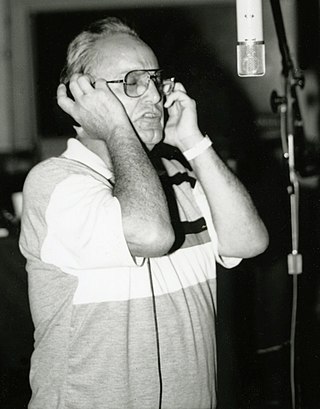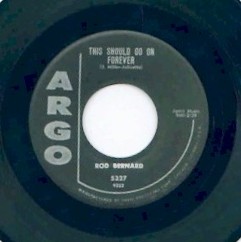
Evangeline Parish is a parish located in the U.S. state of Louisiana. As of the 2020 census, the population was 32,350. The parish seat is Ville Platte.

Ville Platte is the largest city in, and the parish seat of, Evangeline Parish, Louisiana, United States. The population was 6,303 at the 2020 census, down from 8,145 in 2000. The city's name is of French origin, roughly translating to "flat town", in reference to its relatively flat topography in contrast to the more hilly terrain north of the area.

Sidney Simien, known professionally as Rockin' Sidney, was an American R&B, zydeco, and soul musician who began recording in the late 1950s and continued performing until his death. He is best known for his 1985 single "My Toot-Toot", which reached top 20 on the Billboard Hot Country Songs charts and earned him a Grammy Award.
The music of Louisiana can be divided into three general regions: rural south Louisiana, home to Creole Zydeco and Old French, New Orleans, and north Louisiana. The region in and around Greater New Orleans has a unique musical heritage tied to Dixieland jazz, blues, and Afro-Caribbean rhythms. The music of the northern portion of the state starting at Baton Rouge and reaching Shreveport has similarities to that of the rest of the US South.

Cajun music, an emblematic music of Louisiana played by the Cajuns, is rooted in the ballads of the French-speaking Acadians of Canada. Although they are two separate genres, Cajun music is often mentioned in tandem with the Creole-based zydeco music. Both are from southwest Louisiana and share French and African origins. These French Louisiana sounds have influenced American popular music for many decades, especially country music, and have influenced pop culture through mass media, such as television commercials.
Swamp pop is a music genre indigenous to the Acadiana region of south Louisiana and an adjoining section of southeast Texas. Created in the 1950s by young Cajuns and Creoles, it combines New Orleans–style rhythm and blues, country and western, and traditional French Louisiana musical influences. Although a fairly obscure genre, swamp pop maintains a large audience in its south Louisiana and southeast Texas homeland, and it has acquired a small but passionate cult following in the United Kingdom, and Northern Europe
Maison de Soul is a Louisiana-based Zydeco and blues record label. It was founded in 1974 in Ville Platte, Louisiana by Floyd Soileau and remains under his ownership. It is one of four record labels under Soileau's Flat Town Music Company umbrella, and combined the Flat Town labels make up "the largest body of Cajun, zydeco, and swamp music in the world". Living Blues magazine has called Maison de Soul "the country's foremost zydeco label".

Austin Pitre was born in Ville Platte, Louisiana. A Cajun music pioneer, Pitre claimed to be the first musician to play the accordion standing up, rather than sitting down. Along with his band, the Evangeline Playboys, Pitre recorded Cajun dancehall hits such as the "Opelousas Waltz."

Rod Bernard was an American singer who helped to pioneer the musical genre known as "swamp pop", which combined New Orleans-style rhythm and blues, country and western, and Cajun and black Creole music. He is generally considered one of the foremost musicians of this south Louisiana-east Texas idiom, along with such notables as Bobby Charles, Johnnie Allan, Tommy McLain, and Warren Storm.

Dewey Balfa was an American Cajun fiddler and singer who contributed significantly to the popularity of Cajun music. Balfa was born near Mamou, Louisiana. He is perhaps best known for his 1964 performance at the Newport Folk Festival with Gladius Thibodeaux and Vinus LeJeune, where the group received an enthusiastic response from over seventeen thousand audience members. He sang the song "Parlez Nous à Boire" in the 1981 cult film Southern Comfort, in which he had a small role.
The Cajun French Music Association is an association dedicated to the promotion and preservation of Cajun music and culture.

Cajun music has its roots based in the ballads of the French-speaking Acadians of Canada, and in country music.

Keith Frank is an American zydeco musician from Soileau, Louisiana, United States. Frank started his band, The Soileau Zydeco Band, in 1990 and is active as of 2023. He is the son of accordion player Preston Frank, and got his start playing for his father's bands, called the Soileau Playboys or the Preston Frank Family Band.

"This Should Go On Forever" is a popular song of the south Louisiana rock and roll genre known as swamp pop. It was written by J. D. "Jay" Miller and Bernard Jolivette
Leo Soileau was one of the most prolific Cajun recording artists of the 1930s and 1940s, recording over 100 songs, which was a substantial amount considering the reluctance to record the music during its early stages. He is known as the second person to record a Cajun record and the first to record this genre with a fiddle.
The Grammy Award for Best Zydeco or Cajun Music Album was an honor presented to recording artists at the 50th, 51st, 52nd and 53rd Annual Grammy Awards (2008–2011) for quality zydeco or cajun music albums. The Grammy Awards, an annual ceremony that was established in 1958 and originally called the Gramophone Awards, are presented by the National Academy of Recording Arts and Sciences of the United States to "honor artistic achievement, technical proficiency and overall excellence in the recording industry, without regard to album sales or chart position".

Cajun fiddle music is a part of the American fiddle music canon. It is derived from the music of southwest Louisiana and southeast Texas, as well as sharing repertoire from the Quebec and Cape Breton Island traditions. It is one of the few extant North American folk music traditions rooted in French chanson. According to Ron Yule, "Louisiana fiddling had its birth roots in Europe, with fiddling being noted as early as the 1400s in Scotland". Zydeco music is a geographically, culturally, and musically related style.

John Irvin Delafose was an American French-speaking Creole Zydeco accordionist from Louisiana.
Captain Gumbo is a Dutch band formed in 1987, which plays mostly zydeco and Cajun music; that is, music in the French traditions of the U.S. state of Louisiana, based around the diatonic accordion. In 1990, their version of "Allons à Lafayette" reached No. 30 in the Dutch singles chart. The band was still active as of 2013.











